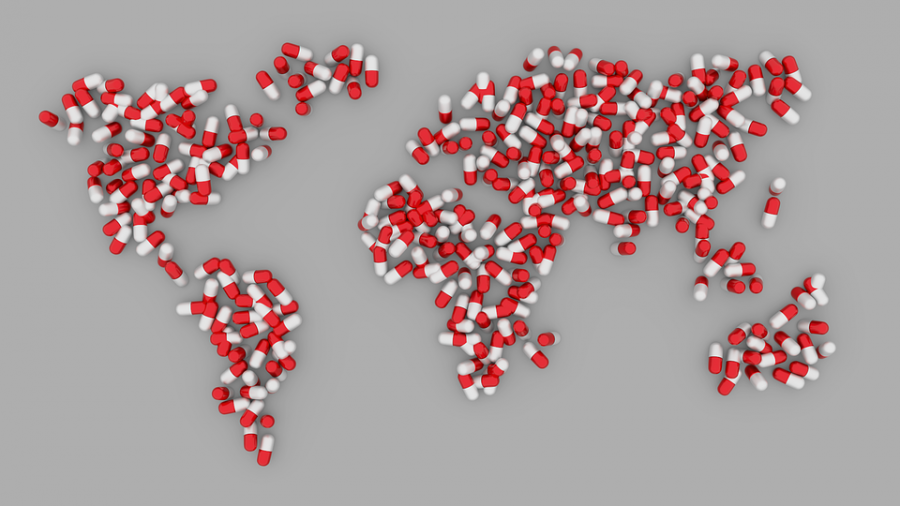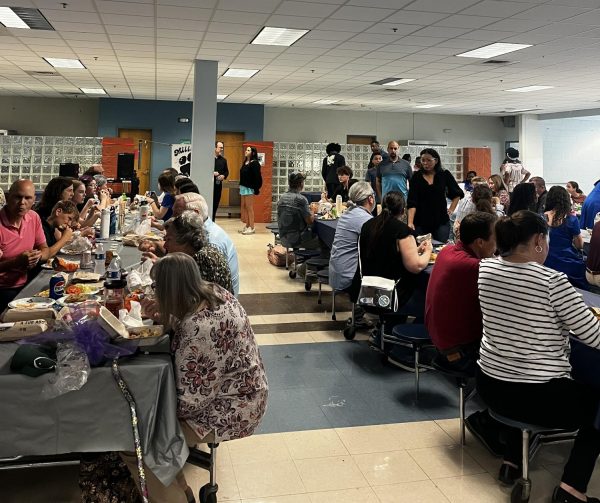It’s Debatable
Prescription drugs: harmful or helpful?
Representing the world map, prescription drugs have run rampant in today’s society being the third most commonly misused substances. When taken as prescribed by a doctor, prescription drugs can be used to cure pain, treat diseases, and fight infection.
December 19, 2018
Prescription and over-the-counter drugs are the most commonly misused substances by Americans ages fourteen and older, after marijuana and alcohol and ahead of cocaine, heroin, and methamphetamine. Prescription drugs are pharmaceutical drugs that require a medical prescription to be dispensed. In contrast, prescriptions are not necessary to obtain over-the-counter drugs. While prescription drugs can have immense medical benefits, they can also have serious consequences including death if used in ways other than as described by a doctor. So, with these two extremes, separated by a fine line, are prescription drug harmful or helpful? I say it’s debatable.
Prescription drugs were a great advancement in the medical world in the early 1900s, with aspirin being the first effective and non-addictive medicine in 1899. Prescription drugs have come a long way since then and are gaining increasing popularity. They are regulated by the Food and Drug Administration and, when taken as instructed by a health provider, can have astounding results. Prescription drugs are used to fight infections by killing or stopping germs from multiplying, target cancer cells, or replace missing or deficient substances. These drugs make dealing with ailments, or minor illnesses, much more bearable. Patients with short-term illnesses only take the drugs during the period which they are sick. For example, antibiotics, flu medication, and prescription cough-syrup are all taken to cure ailments or make living with them easier for the time-being.
Despite the amazing affects posed by prescription drugs, abusing them can be fatal. The “misuse” of prescription drugs is defined as taking them other than directed by a doctor, while the “abuse” of prescription drugs is using them with the sole intention of getting high. Using prescription drugs like opioids, depressants, and stimulants to get high is not only illegal, but also a serious health risk. The popular belief that taking prescription drugs is a safer alternative to street drugs because they are prescribed by medical doctors is false. These drugs cause physical dependence which leads to addiction for many users. Opioids can leave users sleepy and nauseous and, at higher doses, struggling to breathe properly. Paranoia, high body temperature, and high heart rate are all symptoms of stimulants like Adderall, which are being both sold and shared in schools now more than ever. Lastly, depressants can cause slurred speech, shallow breathing, sleepiness, disorientation, and if stopped suddenly, seizures. High doses of these drugs can lead to overdose and death.
Countless lives have been lost to the abuse and misuse of prescription drugs, such as my favorite blonde bombshell, Marilyn Monroe, who died from an overdose on barbiturates (depressant). When used responsibly, prescription drugs can have monumental impacts like killing cancer cells and fighting other diseases and infections. However, serious medical problems can result from taking these drugs other than prescribed. Humanities teacher Justin Nolan claimed, “I think that prescription drugs are obviously useful in the right context and with the correct management; however, the impact of abuse is far-reaching and long-lasting. I cannot help but wonder at the degree to which this current opioid crisis, which killed over 30,000 Americans last year alone, can’t be, at least to some extent, laid at the feet of irresponsible medical practices.”
The one good thing about addiction is that it is treatable. If you or someone you know is struggling with drug abuse, treatment can be sought through the Substance Abuse Treatment Facility Locator at 1-800-662-HELP www.findtreatment.samhsa.gov.













Selvyn Williams • Dec 28, 2018 at 9:37 pm
Great Article! This is a very important topic too !!